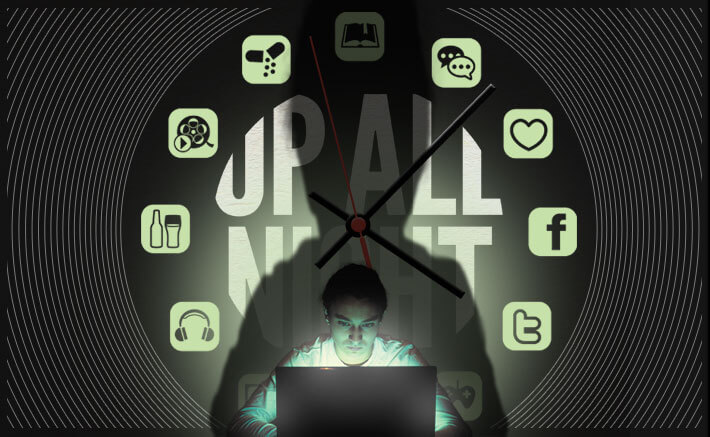MISSING THE BUS
It’s 5 a.m. on a Friday and Ashley is finishing up homework she wasn’t able to finish the night before. It’s okay, though.
“Oh my God, tomorrow I get to sleep late,” she says. “I can’t wait.”
Friday night and Saturday, Ashley’s schedule is completely free from anything academic and sports-related. But it’s also her friend’s birthday tonight, and she can’t miss the party.
“Really, I would stay up late no matter what,” she says. “Just not as late.”
Teens have a biological tendency to go to sleep later and wake up later, according to Dr. Harly Greenberg, medical director of the North Shore LIJ Sleep Disorders Center.
“Often times, late bed times and late wakeup times contribute directly to a vicious sleep cycle that carries over into the school week,” he says, insisting teens require eight to 10 hours of sleep but are depriving themselves of at least an hour of much-needed rest per night. “Over-scheduling of after-school activities, homework load, and overuse of electronic devices before bed all interact with the biological tendency adolescents have to delay sleep, resulting in an insufficient amount of rest for school.”
A study in the Oct. 1 issue of the journal Sleep recorded the bedtimes and wake times of kids ages 9 to 16. The children who went to bed late and got up late were 1.5 times more likely to become obese than those who went to bed early and got up early. They were also almost twice as likely to be physically inactive and 2.9 times more likely to sit in front of the TV and computer or play video games for hours.
“It is widely accepted that the sleep patterns of adolescents are fundamentally different from children and adults, and that it is normal for adolescents to stay up very late and sleep in late in the morning,” says the study’s co-author Carol Maher. “Scientists have realized in recent years that children who get less sleep tend to do worse on a variety of health outcomes, including the risk of being overweight and obese.”
Maher says mornings are more conducive to physical activity for young people than nights, which offer prime-time TV programming and social networking opportunities. This relationship between time of day and available activities might explain why more sedentary and screen-based behaviors were observed with later bedtimes, she said.
Psychologist Saul Rothenberg of the Sleep Disorders Center says the negative effects of sleep deprivation among teens go even further.
“Chronic sleep deprivation is a risk factor for the development of depression, leading to difficulties with family, teacher, and fellow student relationships,” he says. “Loss of sleep in teenagers leads to difficulty with memory and concentration, and changes in motor responses and reaction time affect athletic performance.”
That impaired reaction time also presents dangers for teens behind the wheel, increasing the risk for fatigue-related motor vehicle accidents, he says.
Cutting back on sleep by even one hour can make it tough to focus the next day and can slow your response time, according to the US Department of Health and Human Services, which equates the hazards of drunk driving with those of drowsy driving. Like alcohol, a lack of sleep makes it harder to react quickly enough to a suddenly braking car, a sharp curve in the road, or other potentially dangerous situations.
A research team led by Daniel Taylor, an assistant professor of psychology at the University of North Texas recommends that studies be conducted on effective interventions for sleep-deprived college students.
“We know little about the health of this age range,” says Taylor. “Even though the consequences—substance use, psychopathology, poor grades, dropout and subsequent unemployment—of sleep disturbance could be greatest.”
His research team not only found that students who get insufficient sleep often fall asleep while driving or have motor vehicle accidents due to sleepiness, but these students frequently use medication and alcohol as sleep aids and stimulants as alertness aids—a practice pervasive on college campuses.































